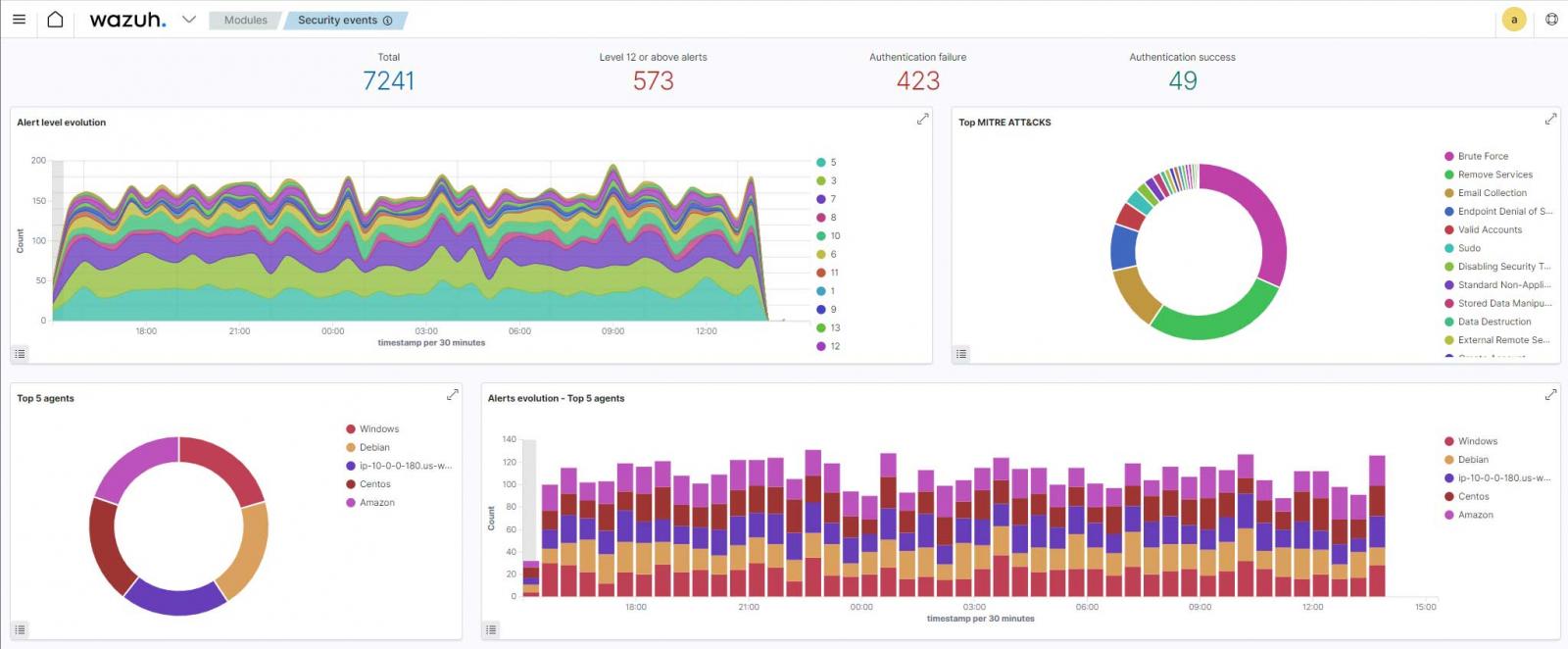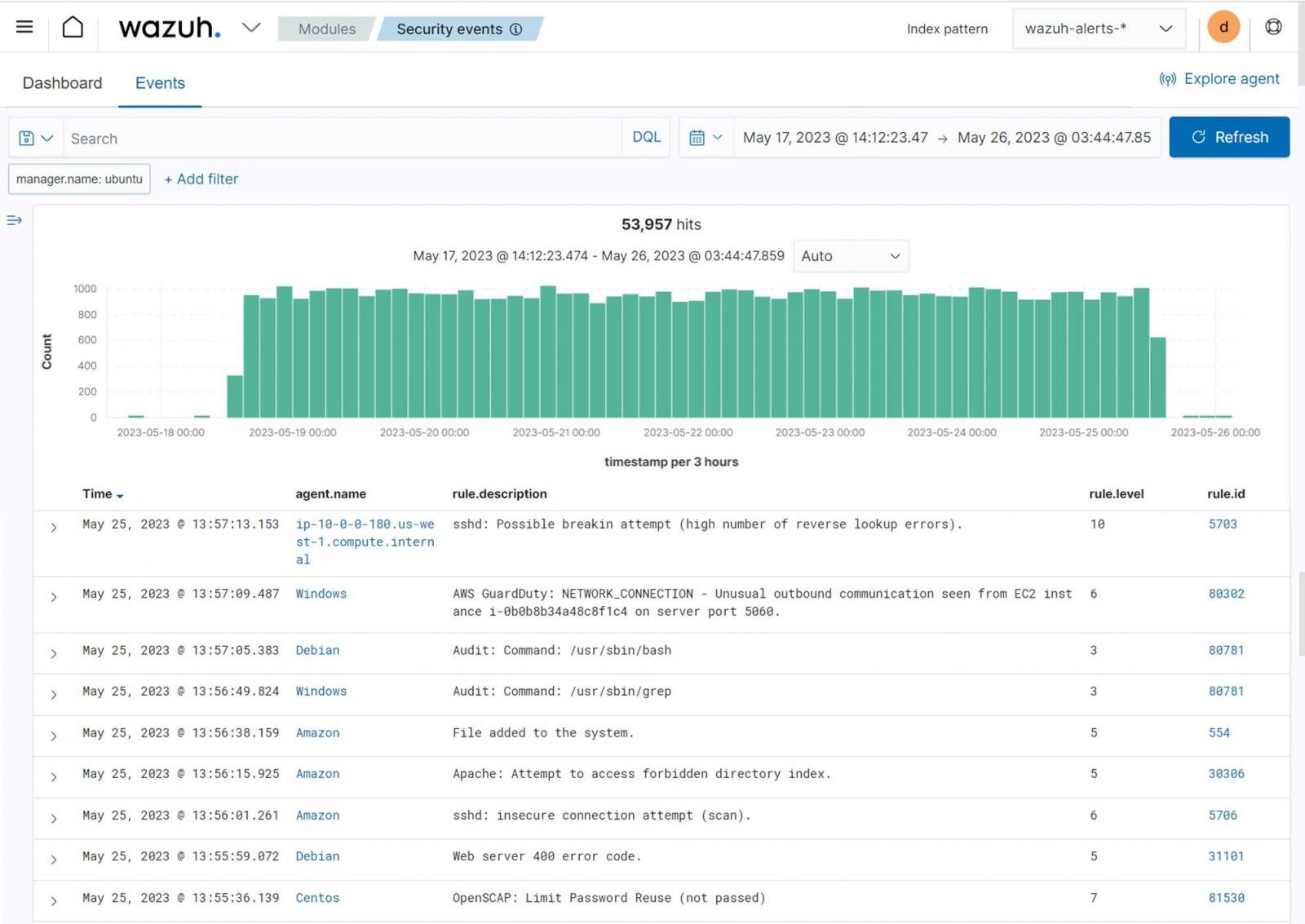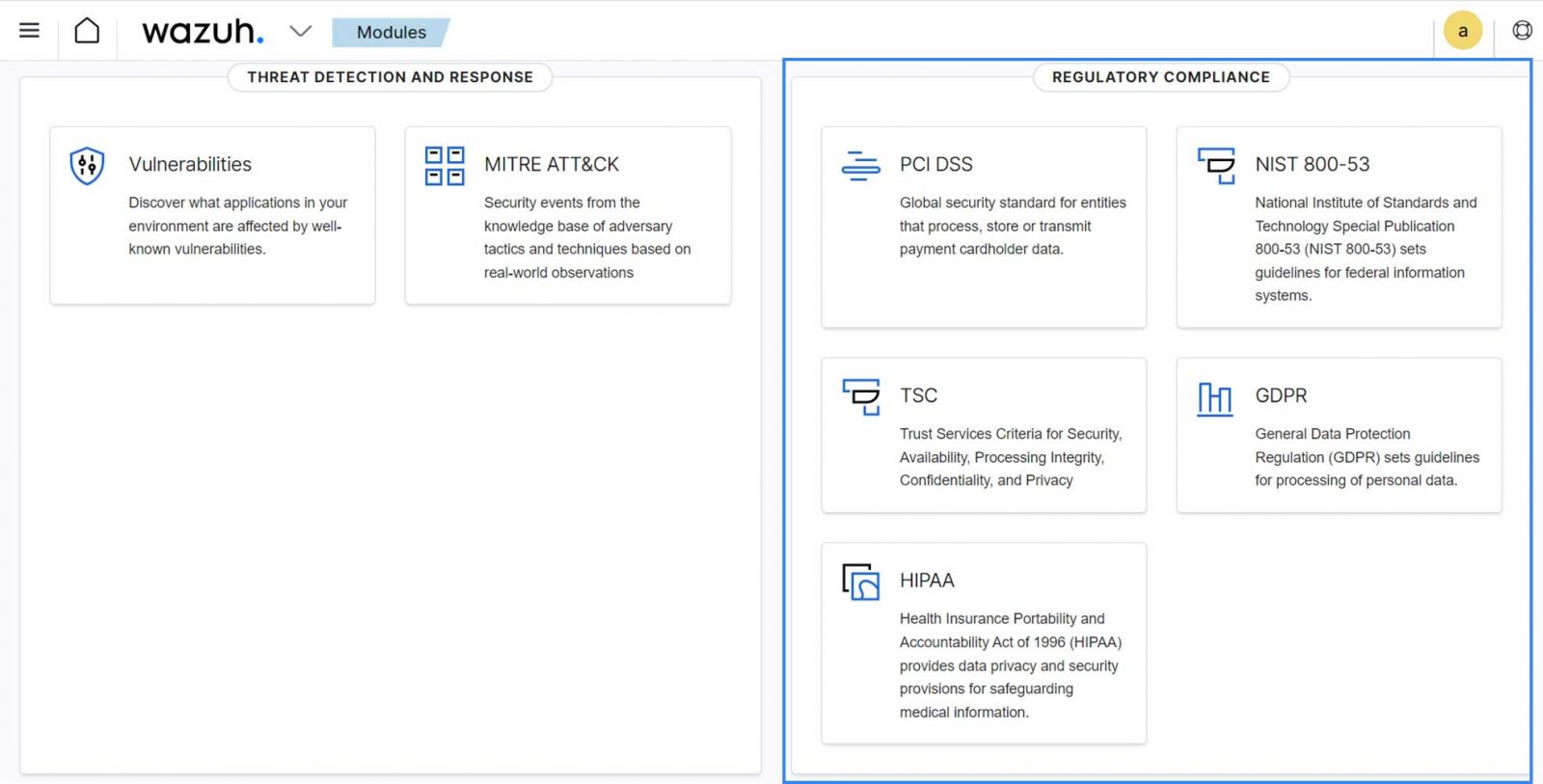Cybersecurity has become a crucial concern for businesses of all sizes and sectors in today’s digital era. Cyber attacks are becoming more frequent and intricate, making it difficult for companies to safeguard themselves against data breaches, malware infections, and other malicious activities.
Small and medium-sized enterprises (SMEs) are especially susceptible as they usually lack the required resources to implement robust cybersecurity controls. Nonetheless, SMEs need to protect their assets and handle their cybersecurity risks effectively with the right approaches and tools.
Wazuh is a free and open source security monitoring solution that provides unified XDR and SIEM capabilities for incident response, threat detection, file integrity monitoring, and compliance management. It helps businesses of any size detect and react to cybersecurity threats instantly, thereby improving their overall security posture.
This article examines how small and medium-sized enterprises can use Wazuh to improve their cybersecurity.
Free and open source
SMEs often operate on a limited budget, and investing in expensive security solutions can be challenging for them. However, cybersecurity is crucial for SMEs as they are equally vulnerable to cyber attacks as large corporations.
The Wazuh platform enables SMEs to monitor and protect their IT infrastructure from cyber threats. It is a free security solution that provides comprehensive protection against cyber threats. It is a powerful and scalable platform that can be easily customized to meet the specific needs of an organization.
By using Wazuh, SMEs can effectively manage their security operations and detect potential threats before they become a significant problem.
Additionally, the platform can be deployed in the cloud or on-premises using commodity hardware, reducing the need for expensive infrastructure. Wazuh provides user-friendly documentation with clear steps to efficiently install, administer and configure its out-of-box capabilities.
As an open source security platform, Wazuh allows SMEs to take advantage of its large and active community. The open source nature of Wazuh also means that SMEs can customize and extend the platform to meet their unique security needs. They can also contribute to the platform’s development by sharing their feedback and contributing to the community.
Enhanced threat detection and simplified incident response
As a comprehensive SIEM and XDR solution, Wazuh provides advanced threat detection capabilities that empower organizations to monitor, detect and respond to potential threats to endpoints and data.
Wazuh provides real-time alerts and notifications whenever it detects suspicious activity in monitored infrastructure. By using Wazuh, SMEs can respond to security incidents promptly, thereby minimizing the potential impact of such incidents.
The platform also provides detailed reports and analytics, allowing organizations to understand the nature and severity of threats and take appropriate action to prevent future incidents.

In the event of a cyber attack, SMEs need to have a well-defined incident response plan to minimize the impact on their operations and data. Wazuh XDR helps simplify SMEs’ incident response efforts by offering a centralized platform for threat detection, analysis, and response.
It collects data from various sources, making it easier for SMEs to identify the root cause of an incident and respond accordingly.
Wazuh also provides a range of response actions, such as blocking malicious IP addresses, terminating suspicious processes, and quarantining infected devices. These actions allow SMEs to quickly contain an incident and prevent it from spreading to other endpoints.
Wazuh enables SMEs to automate their incident response processes, reducing the need for manual intervention and improving their response times.

Regulatory compliance management
Compliance management is another critical aspect of cybersecurity for organizations. Various regulations and standards, such as PCI DSS, HIPAA, and GDPR, require many organizations to maintain specific security controls. Failure to comply with these regulations can result in significant fines, legal penalties, and damage to an organization’s reputation.
One of the features of Wazuh compliance management capability is its ability to automate compliance reporting. Wazuh provides a variety of pre-built compliance templates that map to various regulations, making it easy to generate reports on your organization’s compliance status.
These templates can save significant time and effort for compliance teams who would otherwise need to compile and analyze data from multiple sources manually.
With Wazuh, users acquire the ability to map their own custom detection rules and configurations to various compliance standards, ensuring that their security monitoring aligns with specific regulatory requirements.
Also, Wazuh compliance reporting capabilities can help organizations identify gaps in their compliance posture and take steps to address them.

Scalability and ease of deployment
The cybersecurity needs of SMEs grow as they expand their infrastructure and services. They may need to monitor more endpoints, collect and analyze more logs, and respond to a higher volume of security incidents. Considering these requirements, it is crucial to emphasize that Wazuh is designed to be scalable, allowing SMEs to easily expand their security operations as needed.
SMEs can easily extend their security capabilities by integrating Wazuh with other security technologies, such as security orchestrators, threat intelligence feeds, and incident management platforms. This enables SMEs to achieve greater visibility and control over their security posture, ensuring that they can quickly adapt to changing threats and business requirements.
Another benefit of Wazuh is its ease of deployment and management. The platform can be deployed on-premises or in the cloud. This allows SMEs to choose the deployment model that best suits their budget and IT infrastructure.
Moreover, SMEs can easily configure the platform to meet their specific security needs and monitor its performance through a centralized dashboard. These features simplify the overall management of cybersecurity operations and allow businesses to focus on other priorities.
Conclusion
In conclusion, Wazuh is a powerful platform that can significantly enhance the cybersecurity posture of SMEs.
With its wide range of capabilities, SMEs can have a better understanding of their IT infrastructure and identify potential vulnerabilities before they can be exploited. Wazuh open source nature and ease of use make it an affordable and accessible solution for businesses of all sizes.
By implementing Wazuh, SMEs can safeguard their valuable data, protect their endpoints from cyber threats, and ensure compliance with regulations.
Sponsored and written by Wazuh
